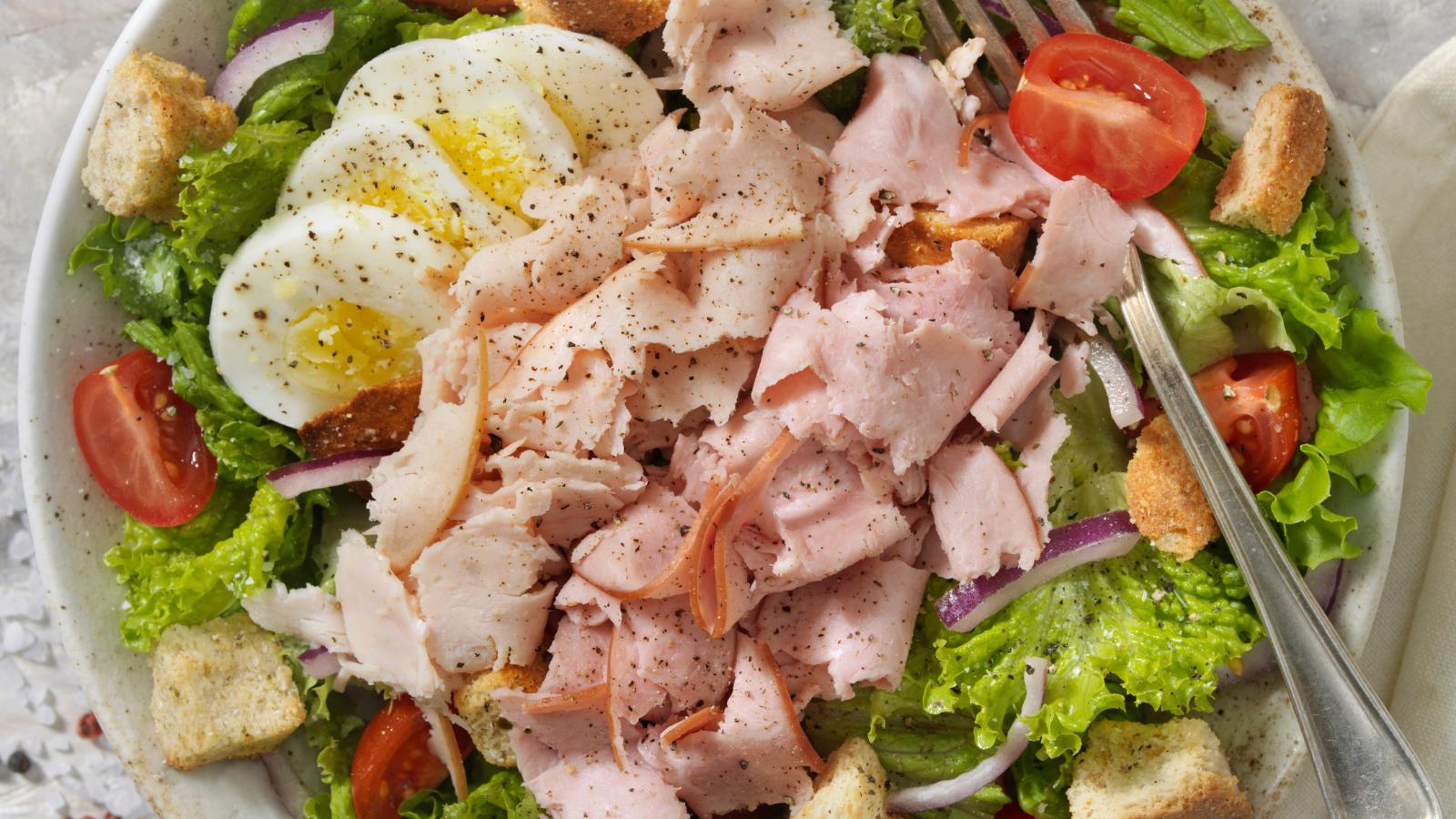Don't Sabotage Your Salad with these Ingredients
Even healthy habits need a hidden sugar check-up
Salads are the go-to meal for many trying to eat healthier, add more veggies to their diet, or even lose weight. Done right - these big, beautiful bowls of nutrient-dense foods are as delicious to look at as they are to eat!
But not all salads are created equal.
As many a sad smoothie fan discovered when calories were published on menus, some shocking ingredients can be hidden in plain sight. Let's look at some of the pitfalls and see if we can't come up with clever solutions? (SPOILER: WE CAN.)
High Calorie Cheese
It is a common misconception that salads are automatically low in calories. Don't get us wrong, a big bowl of greens and veggies is still great even with high-calorie additions because of the vitamins and minerals. But if you're trying to move the needle on the scale, calories in v. calories out still matters.
Cheese is one of the most common calorie culprits. But it is delicious and we will not give it up! In small amounts, cheese adds amazing flavor, some satisfying fat, and a bit of creaminess that can absolutely encourage more salad eating. More salads = More veggies.
Keep in mind that aged and hard cheeses are lowest in sugar. Swiss, Part-skim mozzarella, and Parmesean are lower in sugar and lower in calories than other cheeses and are compromise ingredients that don't sabotage your salad.
High Sodium Meat
Bacon. It is a complete sentence, really. If you indulge, you know. Nutritionally, it is pretty hard to justify. On the taste scale, it is off the charts. This is one ingredient that needs a disciplined hand. Let a VERY little go a long way.
Other meat ingredients that sabotage your salad are processed meats like deli ham, salami, or pepperoni. Even turkey or chicken that has been packaged into slices and processed for shelf life can add a whole heap of sodium to your salad that you didn't factor. Unfortunately those packaged meats often include a sugar water solution, too. It plumps up the meat and helps it retain moisture but is another sneaky way sugar finds a way into your diet.
Try grilling a family pack of chicken tenderloins for the week and use in salads, on sandwiches, and for a quick stirfry.
High Sugar Dressing
You probably know it, but salad dressings can make or break your salad.
Often, the dressing is the most significant source of calories in your salad. It's pretty easy to exceed the 2 Tbsp. recommended serving, especially if you're enjoying a big salad! It pays to look at the label and, when necessary, to measure.
Getting a big dose of sugar on top of that calorie reality is downright rude. Most commercial salad dressings contain added sugars. Sugar is used as the flavor or to enhance other flavor. Honey mustard, French, and Thousand Island often have the highest sugar content. Like most things with sugar, we taste a little and we end up wanting a lot.
As we know, excessive sugar intake is linked to various health issues, including weight gain, insulin resistance, and inflammation.
SUGAR FREE SABOTAGE
If the salad dressing is "low calorie" or "sugar free," you can almost guarantee that it will have sucralose, erythritol, or xylitol. Cutting sugar is a great step toward better health, but replacing it with artificial sweeteners creates a new set of problems. There are risks associated with artificial sweeteners - from insulin resistance to inflammation to damaged microbiome.
NAMING AND SHAMING MALTODEXTRIN
There is a very popular, sugar-free brand that uses maltodextrin in their salad dressings. Maltodextrin is is absolutely one of those ingredients that sabotage your salad. It pretty much sabotages everything.
This poly saccharide has a glycemic index of 110-185, higher than table sugar. It can cause sharp spikes in blood sugar even though it is so common in sugar free foods. As a result, if you have any kind of metabolic issue, including and especially diabetes or insulin resistance, you may want to avoid maltodextrin.
Unfortunately, it's found in 60% of processed foods as well as gluten-free foods, baked goods, sports drinks, and even infant formula. You might see it called corn syrup solids, modified corn starch, modified rice starch, modified tapioca starch, or modified wheat starch.

Dressings that Don't Sabotage Your Salad
Don't despair! There are SO MANY delicious and easy salad dressings that you can make at home. We'll update this with new recipes using Sugar Free Sinless Syrups as they get published. Do you have any requests? Let us know at missmary@missmarysmix.com or in our Facebook Group. 💙







